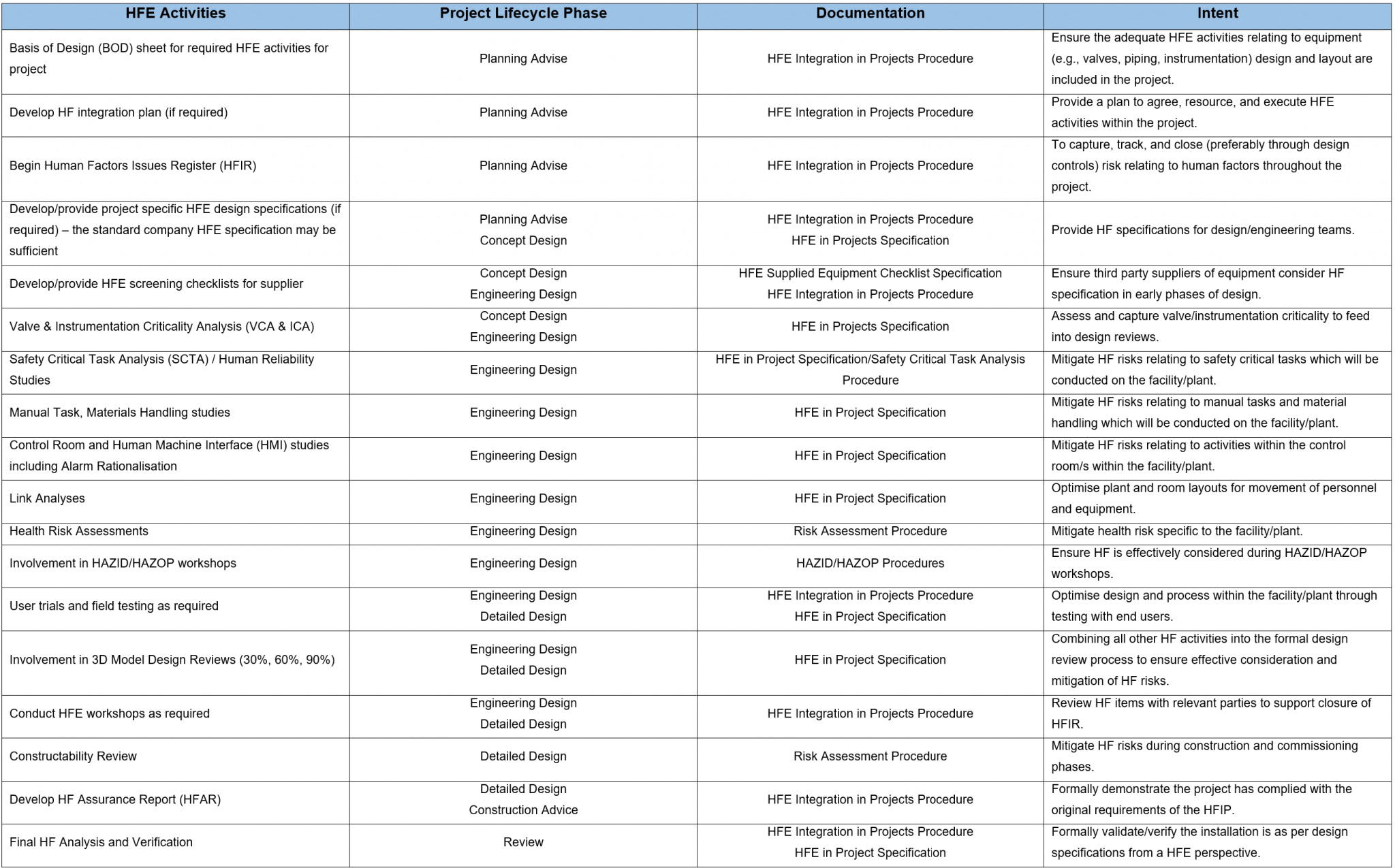Human Factors Engineering (HFE) is a scientific discipline which optimises the design of plant, equipment, and processes to protect against human vulnerabilities and optimise for human capabilities. The underlying objectives are for safe, efficient, and effective operations.
Given design / engineering controls are more effective within the context of the hierarchy of controls, HFE is generally accepted to be the most effective approach to managing human performance. If the potential error can be mitigated through design, it reduces the reliance upon procedural and administrative controls.
HFE is commonly used in five industries: Oil & Gas, Rail, Aviation, Defence and Nuclear. It is used here mostly due to catastrophic failures in the past, where design characteristics failed to protect against human error resulting in significant loss of life and / or harm to the environment. These industries now also use HFE for usability in design, not just safety, given the positive impact on human and operational performance. As an approach to the management of human error and optimisation of human performance all industries can benefit from HFE.
The table below shows an extensive list of HFE activities we can be applied throughout the engineering / project lifecycle, the supporting documentation and intended outcome/s.

